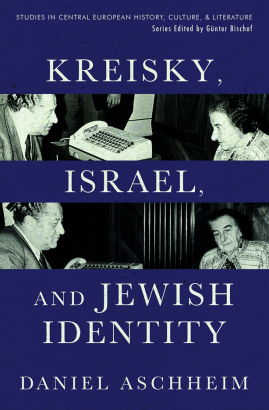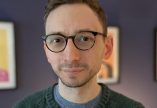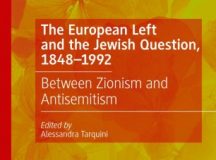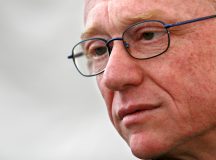On 28 September 1973, two Palestinian terrorists from the Syrian Ba’athist faction As-Sa’iqa hijacked a train near Marchegg on the Austro-Czechoslovak border and took four Soviet Jewish émigrés hostage. The hijackers issued an ultimatum to the Austrian government: close the transit camp for Soviet Jews operated by the Jewish Agency at Schloss Schönau or the hostages will be killed. Out of a desire to preserve human life, Austrian chancellor Bruno Kreisky quickly acquiesced. The hostages were freed and the terrorists given safe passage to Muammar Gaddafi’s Libya.
Days later, on her way home from a Council of Europe summit in Strasbourg, Israeli prime minister Golda Meir stopped off in Vienna to meet with Kreisky and intercede to stop Schönau’s closure. In the chancellor’s dark, wood-panelled office met two Jews from, as Kreisky himself put it to Meir, ‘two different worlds’: an assimilated non-Zionist ‘Austrian of Jewish heritage’ and a formidable woman who had given her life to Zionism and risen to the top in a male-dominated environment. The pair were intractable, and the two-hour meeting ended without conclusion. Meir swiftly departed for Tel Aviv. Upon landing, she told journalists Kreisky ‘didn’t even offer me a glass of water’.
As Daniel Aschheim describes in Kreisky, Israel, and Jewish Identity – the first survey of its kind to seriously examine Kreisky’s politics through the prism of his Jewish identity – the Schönau ultimatum was personally wounding for Kreisky, and not only because Meir’s water remark made a man famed for his Viennese hospitality come off as a miser. While a popular decision at home, Schönau’s closure poisoned public opinion towards Kreisky in Israel even though Austria remained a transit land for Soviet Jews emigrating to the West after the ultimatum. Between 1968 and 1986, 270,199 made it to the United States, Israel, and other countries via neutral Austria.
Born 22 January 1911, Bruno Kreisky remains the most significant Austrian political figure of the postwar era. Chancellor from 1970 until 1983, as head of the Social Democratic Party (SPÖ), Kreisky’s five consecutive election victories and three absolute majorities (in 1971, 1975, and 1979) stand as an unparalleled achievement at the ballot box. While conscious of Austrian cultural conservatism, Kreisky was able to pursue a modernising socialist agenda encompassing free university education, the 40-hour work-week, and the decriminalisation of abortion and homosexuality. Among Austrians, the Kreisky era is generally remembered nostalgically as a period of low unemployment and rising living standards.
It was a time, too, when Austria punched above its weight in international affairs and its permanent neutrality became an active one. The United Nations Office at Vienna was established in 1980, and the Austrian capital played host to Strategic Arms Limitation Talks between the United States and the Soviet Union. While German chancellor Willy Brandt promoted his Ostpolitik, Kreisky made the Middle East his preserve, establishing relations with the Palestine Liberation Organisation (PLO) in 1980 and cultivating good terms with Gaddafi, PLO chair Yasser Arafat, and Egyptian president Anwar Sadat. Together with Brandt and Swedish prime minister Olof Palme, Kreisky was also a champion of North-South dialogue and cooperation.
Aschheim – an Israeli diplomat who is currently serving as deputy consul general at the Israel’s consulate general to the American Midwest – has not written a biography of Kreisky. Rather, in Kreisky, Israel, and Jewish Identity, he isolates and examines specific aspects of Kreisky’s life such as the Schönau ultimatum in order that we might better understand how his politics – including his turbulent relationship with the State of Israel – were shaped by his conflicted and ambivalent Jewish identity. In doing so, while he does not give Kreisky a clean bill of health, Aschheim displays an admirable sensitivity to the dilemmas of a man who had to navigate the unenviable task of being the Jewish chancellor of post-war Austria.
Kreisky’s views on Jews and Judaism were often expressed in stark, provocative, and rather ugly terms. ‘If the Jews are a people’, he once told an Israeli journalist, ‘then they are a lousy people’. Kreisky did not believe in the notion of a Jewish race or Jewish peoplehood, for as he saw it, a Jew in Mannheim had nothing much in common with a Jew in Casablanca or Tel Aviv, and a notion of some larger commonality was antithetical to his humanism and agnostic outlook. While he did not deny Israel its right to exist, he was not a Zionist either, describing Israel as ‘a strip of desert with which I have no ties’. Judaism to Kreisky was a religion, one from which he was both formally and philosophically divorced.
Kreisky’s particular Jewishness has its roots in his upbringing. His was not the world of the poor, religious eastern European Jewish immigrants who resided in shoddy conditions in Vienna’s Jewish neighbourhood. Rather, Kreisky was born into an assimilated middle-class family on the other side of the city, his father the director of a textile factory. ‘Kreisky’s background was liberal in culture, politics, and sensibility’, Aschheim notes. He formally left the Israelitische Kultusgemeinde Wien, the Jewish Community of Vienna, in 1931, and his negative view of Zionism was paired with a strong feeling for Austrian national identity. ‘Like other Austrian Jewish families, the Kreiskys believed that one should fully identify with their country of birth wherever one lived’, Aschheim writes.
In January 1935, Kreisky was arrested and imprisoned for his political activities by the Austrofascist regime that had eradicated Austrian democracy one year prior, an experience which reinforced his worldview. Locked up with Nazis who were also enemies of Austrofascism, Kreisky came to see himself as a persecuted socialist as opposed to a persecuted Jew and Austrofascism and Catholic conservatism as his primary enemies rather than Nazism. Following the Anschluss, he survived the Holocaust in exile in Sweden, where he remained until 1950. The Shoah was an emotional trauma for Kreisky, for he lost many members of his own family, though Aschheim makes it seem as if he never fully assimilated the darkest hours of the twentieth century.
That Kreisky was reticent to be seen as Jewish had a lot to do with the realities of post-war Austria, an antisemitic country that did not want its Jewish returnees. Kreisky delayed his return from exile until 1950 because the SPÖ did not wish to be branded a ‘Jewish party’. During the 1970 election campaign, the conservative People’s Party (ÖVP) insidiously labelled their candidate for chancellor a ‘true Austrian’. Kreisky never challenged the doctrine that Austria was the ‘first victim of national socialism’ or the reassimilation of former Nazis into the body politic for fear of drawing attention to his Jewishness but also out of a kind of crude Realpolitik. The SPÖ could not win an election in Austria without the votes of former Nazis.
Their votes, or indeed, their aid. In 1975, when he felt he was in danger of losing his absolute majority in parliament, Kreisky negotiated in secret with Friedrich Peter – leader of the Freedom Party (FPÖ), a party founded by ex-Nazis – about the possibility of forming a coalition government. In the end, the SPÖ retained their majority and the SPÖ-FPÖ pact never came to pass, but after the 1975 election, famed Nazi hunter Simon Wiesenthal revealed Peter had served in a Waffen-SS regiment that had murdered thousands of Jews in the Holocaust on the eastern front. Wiesenthal’s discovery and Kreisky’s unconscionable reaction to it – accusing the Holocaust survivor of being a Gestapo collaborator based on the flimsiest of evidence – became the ‘Kreisky–Peter–Wiesenthal affair’.
The affair’s political dimension gets rather lost in Aschheim’s collage-like presentation of reflections and remembrances. Wiesenthal was a mover in local Jewish communal politics who was close to the ÖVP. In 1970, Wiesenthal revealed – much to Kreisky’s chagrin – that four of his SPÖ cabinet ministers in his first minority government were former Nazis. Kreisky never forgot that Wiesenthal had allowed old Nazis appointed ministers by the ÖVP like Reinhard Kamitz and Karl Schleinzer to pass under the radar. In Kreisky’s eyes, Wiesenthal was acting as an agent of the ÖVP, publishing negative information about Peter in order to hinder an SPÖ-FPÖ coalition.
But the reason the Kreisky–Peter–Wiesenthal affair was so emotional is that it was deeply personal. For Kreisky, Wiesenthal was a kind of embarrassment – someone who reminded Austrians that he, too, was Jewish. Wiesenthal was what Kreisky was not, and the other way around. Wiesenthal had eastern European Jewish roots; Kreisky was a middle-class assimilated Viennese Jew. Wiesenthal was part of the Jewish community; Kreisky had left it. Wiesenthal was a Zionist; Kreisky was not. Wiesenthal had survived the camps; Kreisky lived out the war in exile. Postwar, Wiesenthal demanded justice; Kreisky sought reconciliation and forgetting. The affair was a war between two men who had conflicting and contrasting conceptions of contemporary Jewish identity.
Just as Kreisky could not act rationally when it came to Wiesenthal, so was his Israel politics guided partly by his emotions. ‘Kreisky’s criticism of Zionism was radical’, Aschheim writes. He did not believe Jews were entitled to Zionism or a homeland and ‘considered Zionism as being in a kind of league within antisemitism’ for Zionism ‘welcomed [antisemitism’s] presence and used it for its own purposes’. His criticism of Israeli policy towards the Palestinians was equally harsh and he sometimes held Israelis collectively responsible for their government’s actions. He believed Israeliness and Jewishness to be two separate things – one national, the other religious – and resented the implication that, as the Jewish chancellor of Austria, he should have to do things for Israel out of kinship.
His criticism of Israel had practical purposes. The first was to defuse the notion in the eyes of the Austrian public that Kreisky would be partial to Israel because he was Jewish. The second, so former prime minister Shimon Peres among others in Israel believed, was to ‘tighten Austrian connections with Arab countries’ and improve his standing with people like Sadat, Arafat, and Gaddafi as part of his dream of becoming an arbiter in the Arab-Israeli peace process, a notion that Israel found in turns horrifying and amusing. (Regarding Israel’s leaders, Kreisky actually liked Peres, but had difficult relationships with both Meir and Yitzhak Rabin, whom Kreisky once called ‘worthless’. And the less said about Menachem Begin, the better, for Begin took Kreisky to be a ‘self-hating Jew’.)
But there was more to it than that. For all his protestations, those closest to Kreisky believed he was so sensitive towards matters Israeli because he felt in some way connected to the Jewish state. His mentally disabled brother Paul, whom Kreisky took care of financially, lived in Israel, and his nephew Yossi served in the IDF. Soviet Jewish emigration to Israel flowed through Austria, and ‘he played an important role in negotiating the release of 20 Israeli soldiers taken as prisoners by Palestinian militants’ during the 1982 Lebanon War. In private, Kreisky would say that ‘Israel must have a future so that any Jews in the world could have refuge if ever a situation like the Holocaust should appear again’. His support for the Palestinians, too, seems to have been born in part out of a concern for Israel’s future, foreseeing the rise of militant fundamentalism on the Palestinian side in the event of political statis.
For all his ambition, Kreisky’s immediate impact on the Middle East was limited. Peres assessed that the Austrian chancellor ‘played an important role in bringing Egypt and Israel together’ during the 1970s. His working relationship with Arafat, recognition of the PLO, and support for Palestinian statehood also ‘assisted in spreading the understanding that the Palestinian dimension was central to the conflict’, the Austrian political scientist John Bunzl believed. But Kreisky’s anti-Israel tirades were self-undermining, for they created tensions not only between Austria and Israel but Israel and her Western allies. He also arrived on the scene too early. His efforts, Peres says, ‘prepared the ground for what was to come later. He had a better idea of what the PLO was and what could be done after the Jordanian option had failed’.
Kreisky died on 26 July 1990 and did not live to see the new Austria, which has sought to come to terms with its Nazi past (with admittedly mixed success). In retirement after 1983, he worked on his memoirs, and his interventions in Austrian politics remained consistent with this unforgivable behaviour during the Wiesenthal affair. In 1986, he defended presidential candidate Kurt Waldheim even after the World Jewish Congress presented evidence that showed the former UN secretary general had lied about his wartime service. Two years later, he condemned the Thomas Bernhard play Heldenplatz about a Holocaust survivor who returns to Vienna only to commit suicide, in which a character describes Austria as nations of ‘six-and-a-half million idiots’.
With Kreisky, however, nothing is ever straight-forward, and Aschheim is ever cognisant of his ambivalences and contradictions. It is this, along with his estimable research, that makes Kreisky, Israel, and Jewish Identity commendable, even if at times his desire to present all available views of Kreisky prevents clearer, more graspable narratives from emerging. Aschheim quotes from a conversation he had with the Austrian writer, journalist, and diplomat Barbara Taufar. During the Kreisky years, she worked as a press attaché in Tel Aviv and Paris; in 1987, she converted to Judaism and decided to move to Israel. She recalled a conversation she had had with Kreisky when she announced her decision to emigrate:
It was a hard decision for me, and I had given it much thought. I realised that I just couldn’t handle the negative direction in which our beloved country was going and that Austrian antisemitism was rising again. Kreisky looked at me with tears in his eyes and in his soft voice whispered, ‘We just didn’t learn anything. Anything’. We sat there and cried together. It felt as if we were crying more for Austria’s fate than for ourselves.
Aschheim’s most astute observation about Kreisky is that his ‘plight – conditioned, of course, by the particular circumstances of the Austrian situation, especially the post-Nazi period – conformed to Jean-Paul Sartre’s classical notion of the dialects of Jewish identity: “The Jew is in the situation of a Jew because he lives in the midst of a society that takes him to be a Jew”’. Kreisky felt this. As he told the photographer Herlinde Koelbl during an interview for her 1989 book Jewish Portraits, ‘Auschwitz is the fate of the Jews, and even those who consider their Jewish ancestry to be more or less arbitrary cannot escape it’. At the core of Kreisky’s tempestuous inner conflict was a feeling that the majority would always consider him a Jew, and that to be a Jew in Europe meant, as Amos Oz once phrased it, ‘that Auschwitz was meant for you’.




































